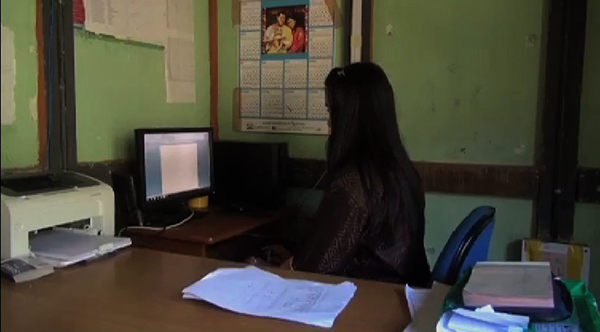 A directive from the home ministry asking all gewog offices to relieve the existing Gyadrungs or Gewog Clerks has the local leaders in Lhuentse worried.
A directive from the home ministry asking all gewog offices to relieve the existing Gyadrungs or Gewog Clerks has the local leaders in Lhuentse worried.
The ministry issued the notification in October following the Royal Civil Service Commission’s (RCSC) Organizational Development (OD) exercise.
It wants the current batch of Gyadrungs to be relieved by March 6 next year.
A new batch of Gyadrungs is to be recruited. They will have to be class 12 graduates and trained in computer application for three months. They would be appointed as administrative assistants on a two-year contract.
The Gups in Lhuentse want the current batch of Gyadrungs to be retained until the new appointments come through. Their proposal has been endorsed by the recent Dzongkhag Tshogdu.
The Chairperson of Lhuentse Dzongkhag Tshogdue, Kuenzang Minjur, said to ensure decentralization of power at the grassroots level, they need more people in the gewog.
“So, Dzongkhag Tshogdue has decided to retain the Gyadrungs until the new recruitment is done. The resolution will be submitted to the ministry for review,” he said.
At the Dzongkhag Tshogdu, Tsaenkhar Gup Tsheten Wangdi said relieving Gyadrungs would cause a lot of manpower related problems in the gewog offices.
“Gups and Mangmis do not get much time to stay in office. They are on the move constantly, carrying out official works. So, there won’t be anyone to provide service to the people if the Gyadrungs are not there as well,” he said.
Maedtsho Gewog Gyadrung resigned two months ago. Gup Gembo said the gewog office faced numerous problems since.
“For instance, we have to close the office when we come to attend Dzongkhag Tshogdue since there is no one to man it,” he said.
Khoma Gup Sithar Tshering said the Khoma Gewog Tshogde has decided the existing Gyadrungs with a class 12 pass qualification should be retained.
The ministry’s decision has also left the Gydrungs worried.
Choni Wangmo, the Tsaenkhar Gyadrung, said it would not only affect the gewog offices but also their lives. This is her seventh year as Gyadrung. “The villagers would be affected the most,” she said.
“Gups and Mangmi are away most of the time attending meetings and trainings. We will also lose our livelihood.”
Khoma Gyadrung Pema Wangchuk shared the same concern. “While we will lose our jobs, the gewog office will face manpower shortage,” he said.
Currently, there are over 200 gaydrungs in the country and their main duties include tax collection and drafting of letters.







